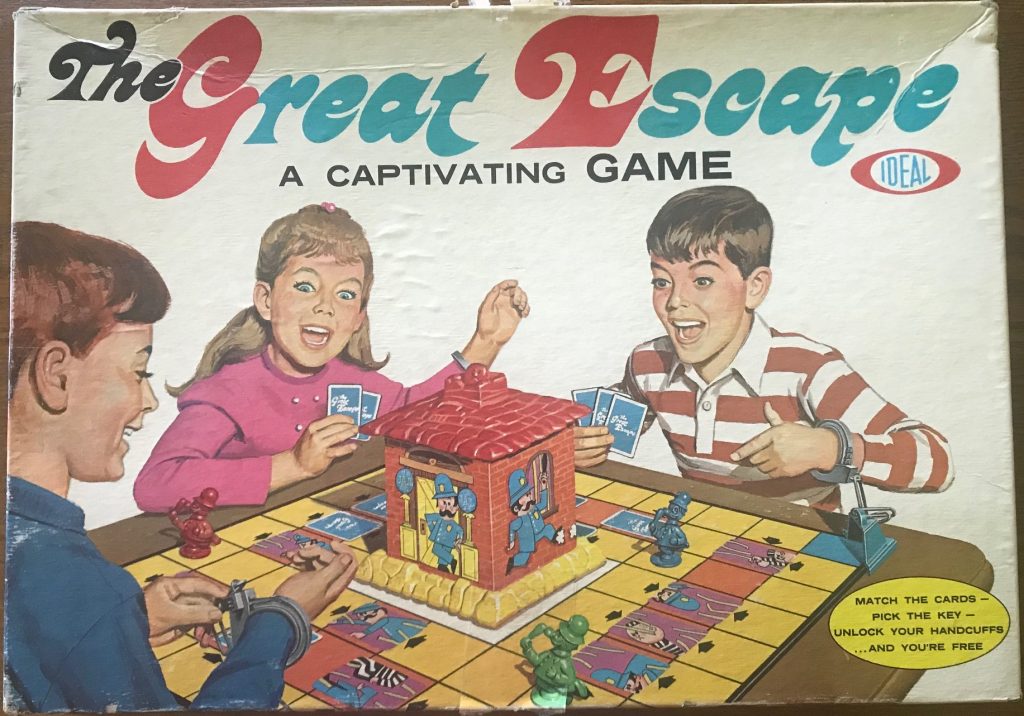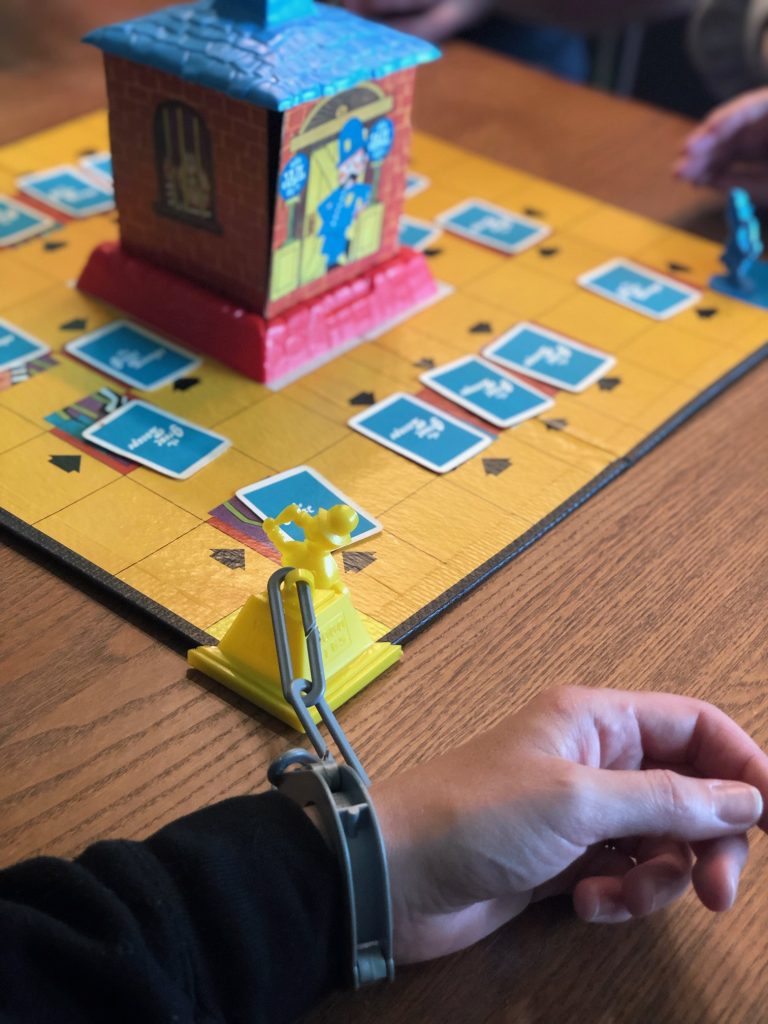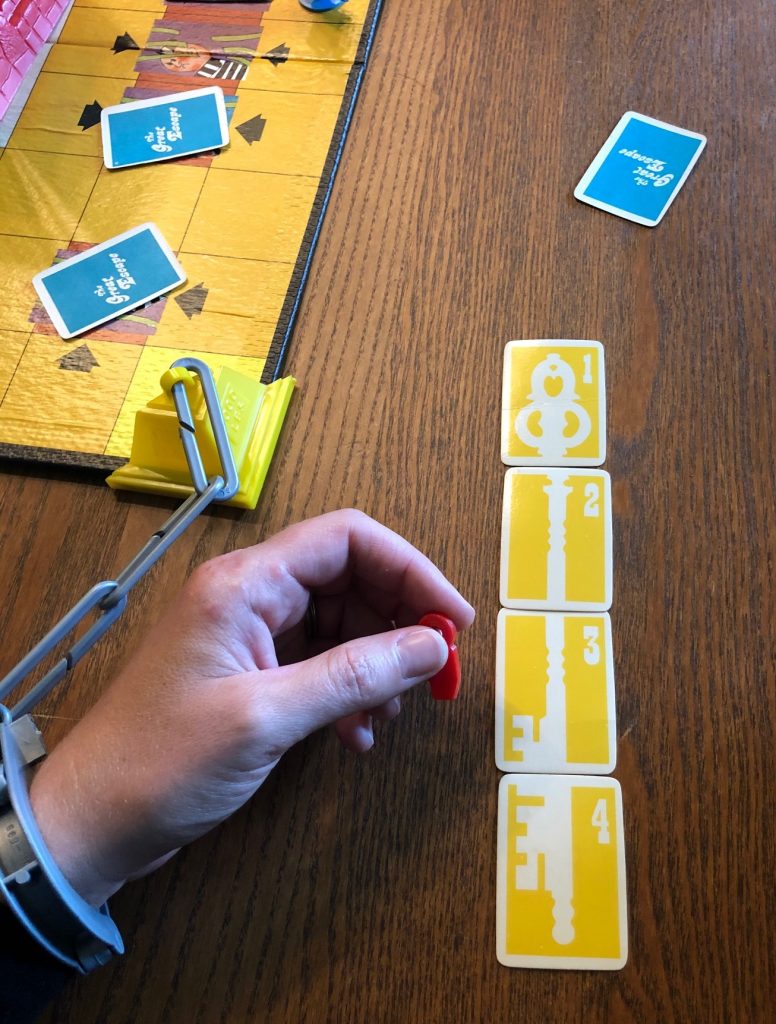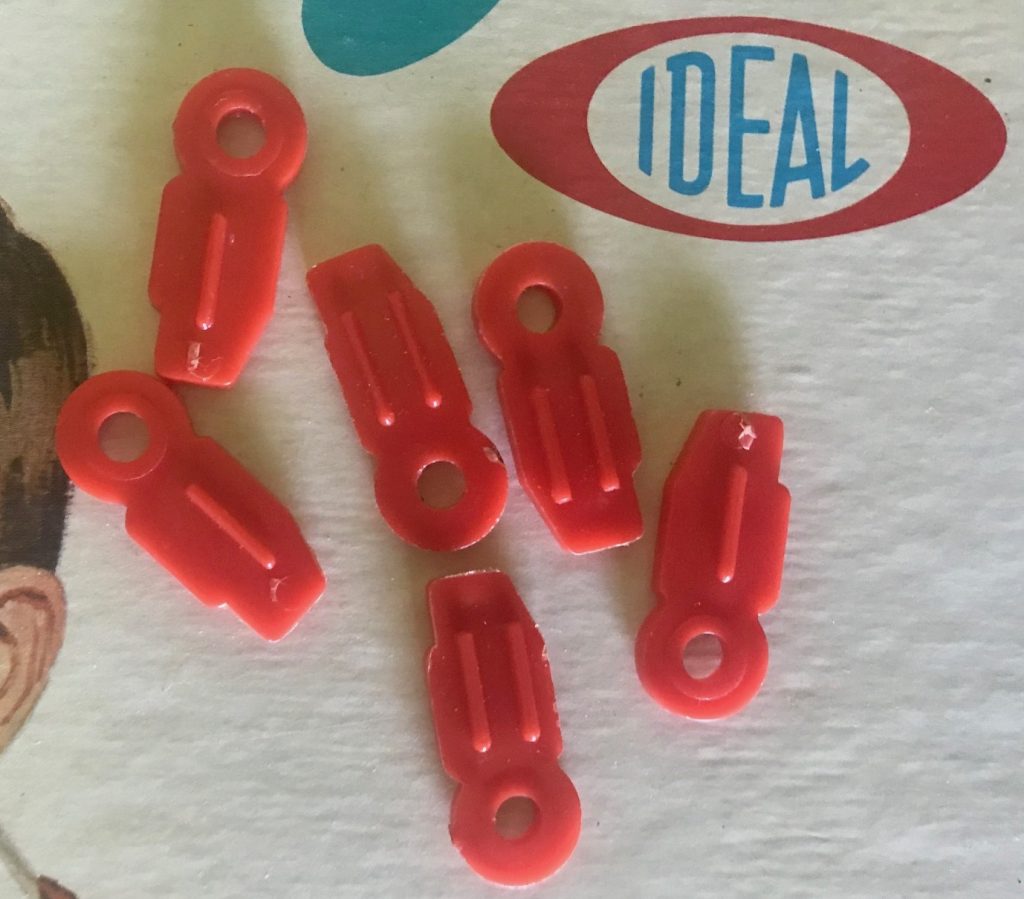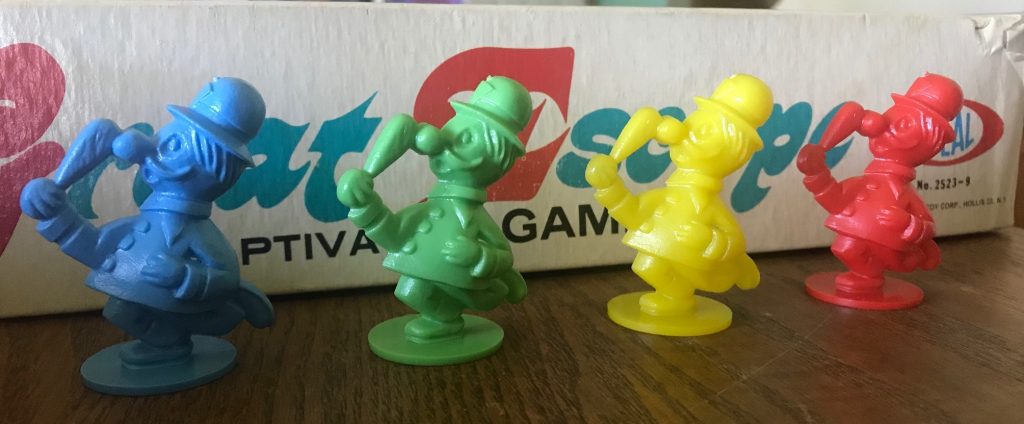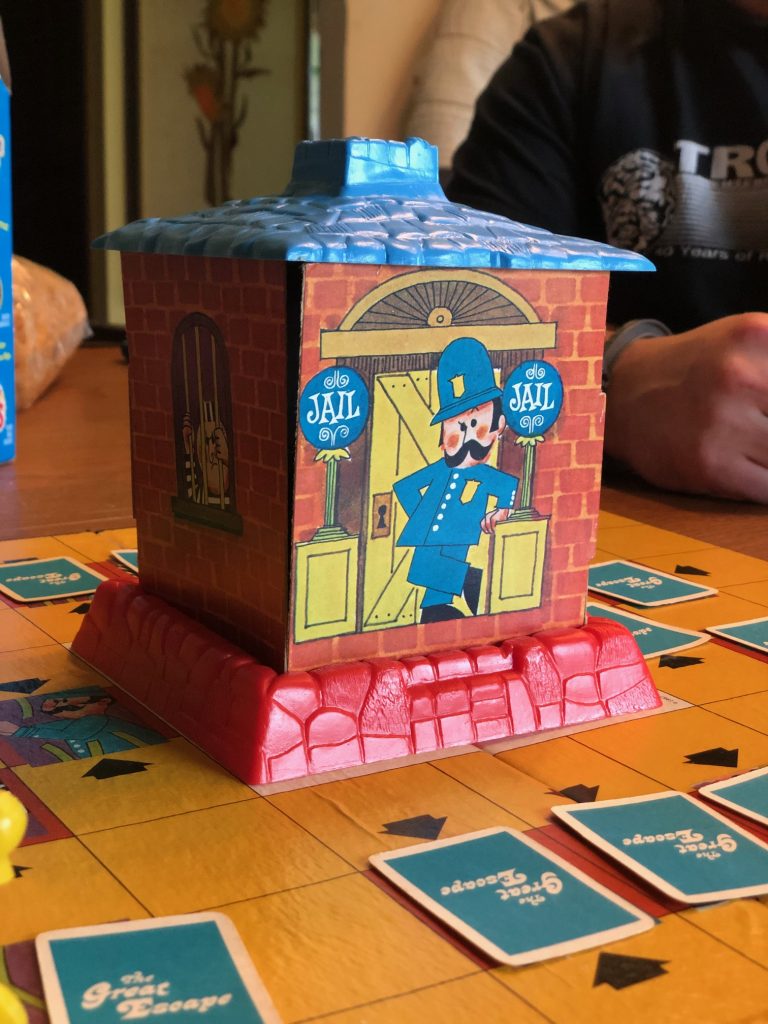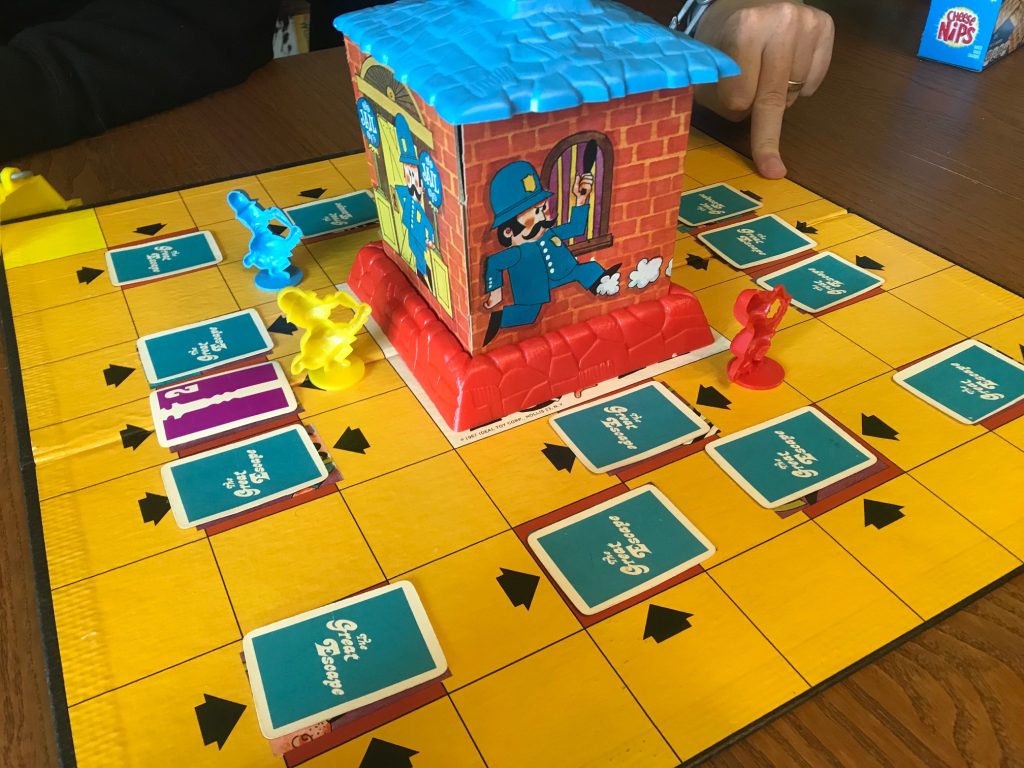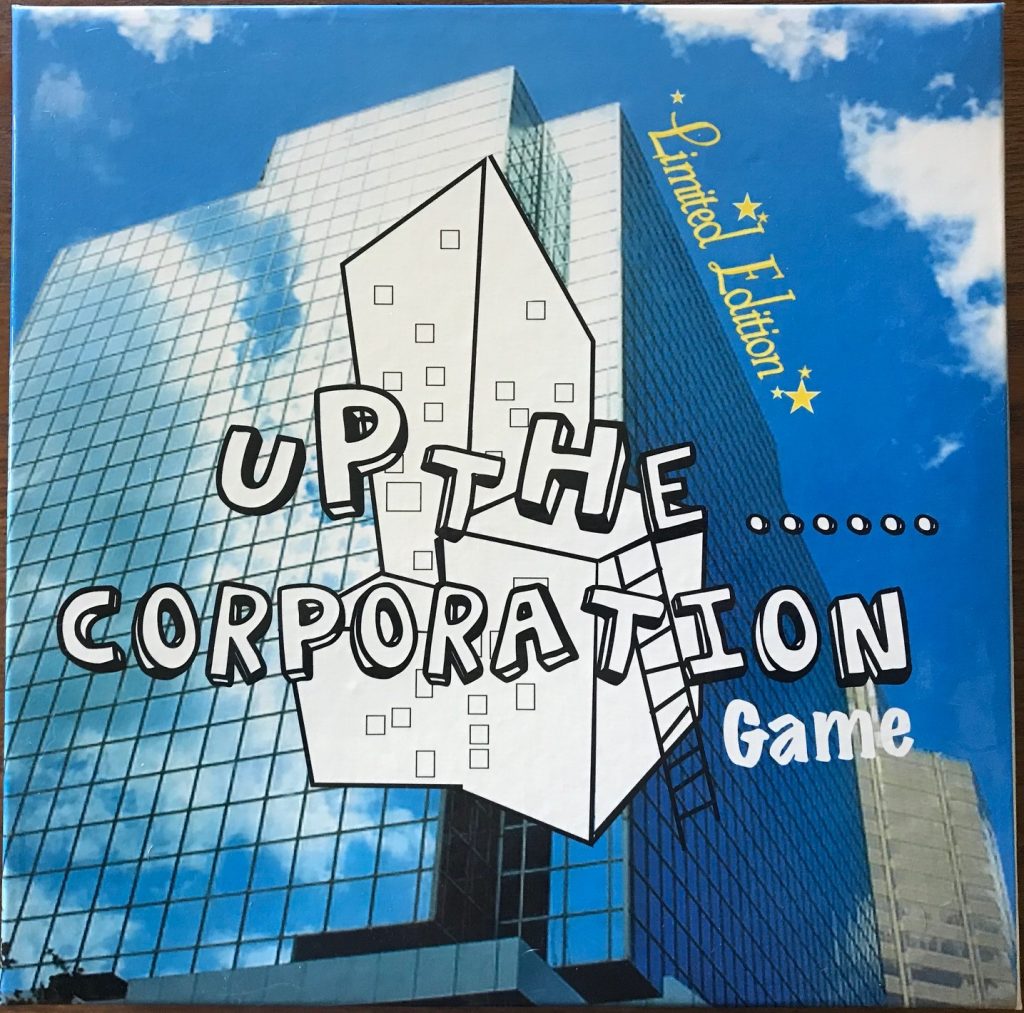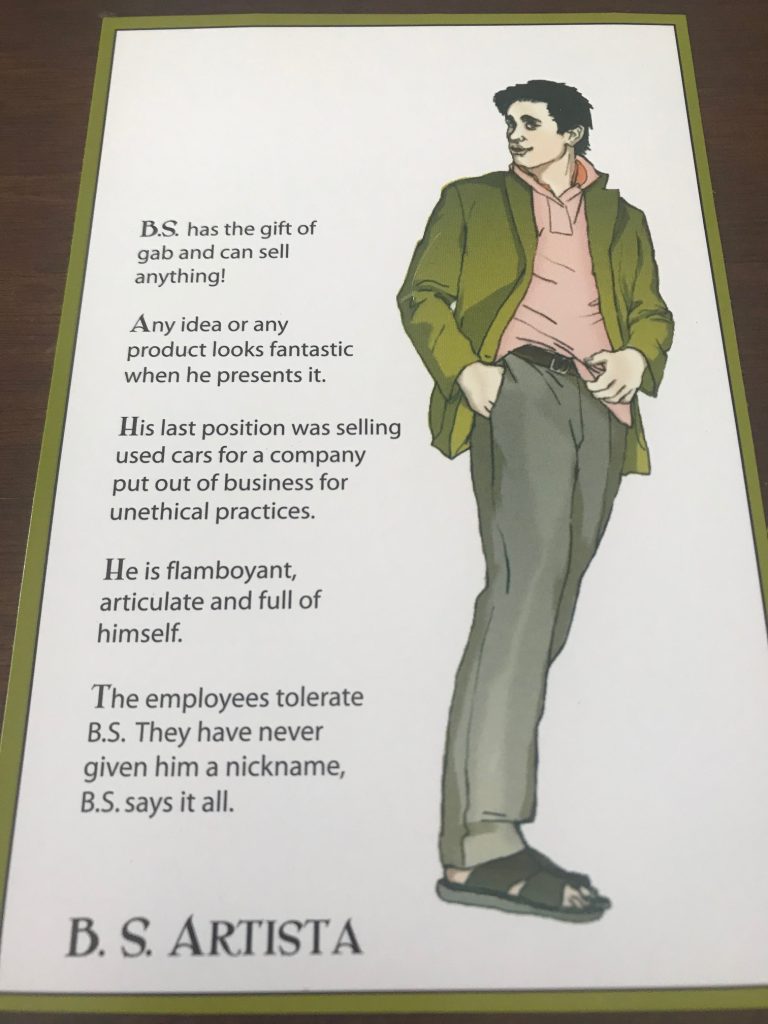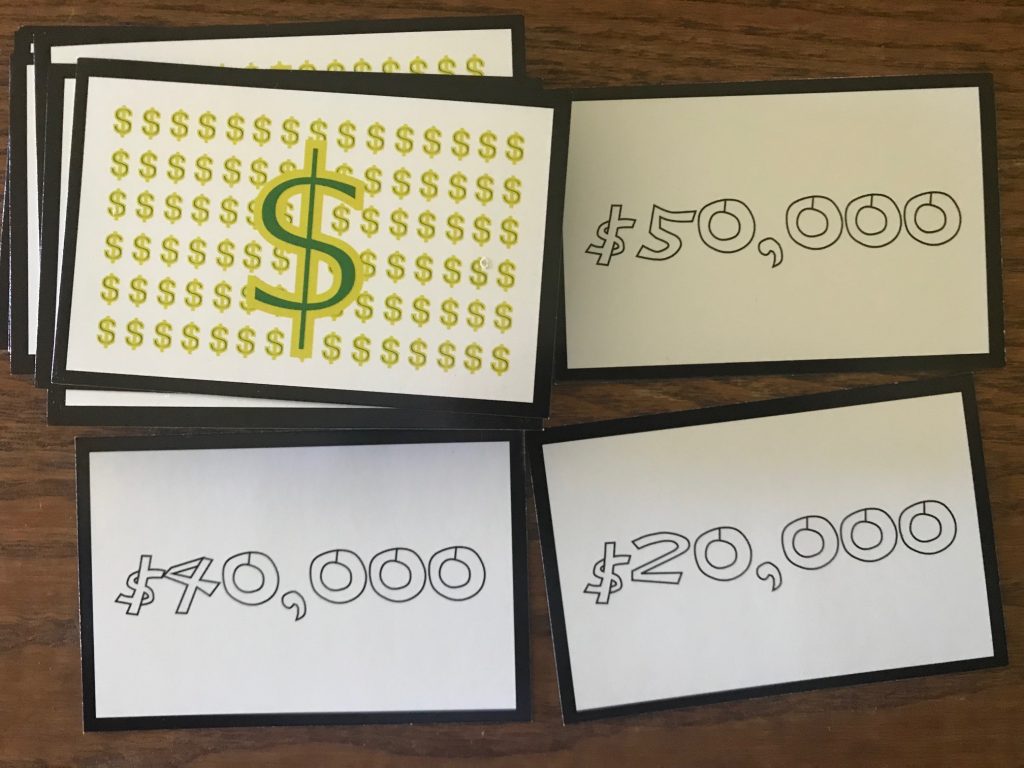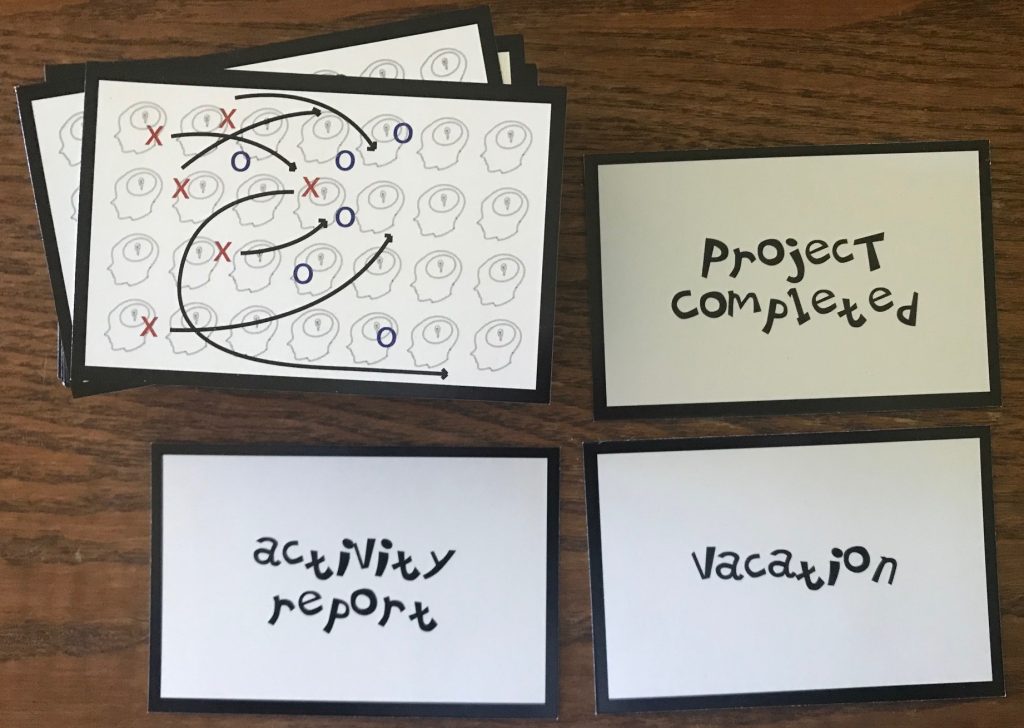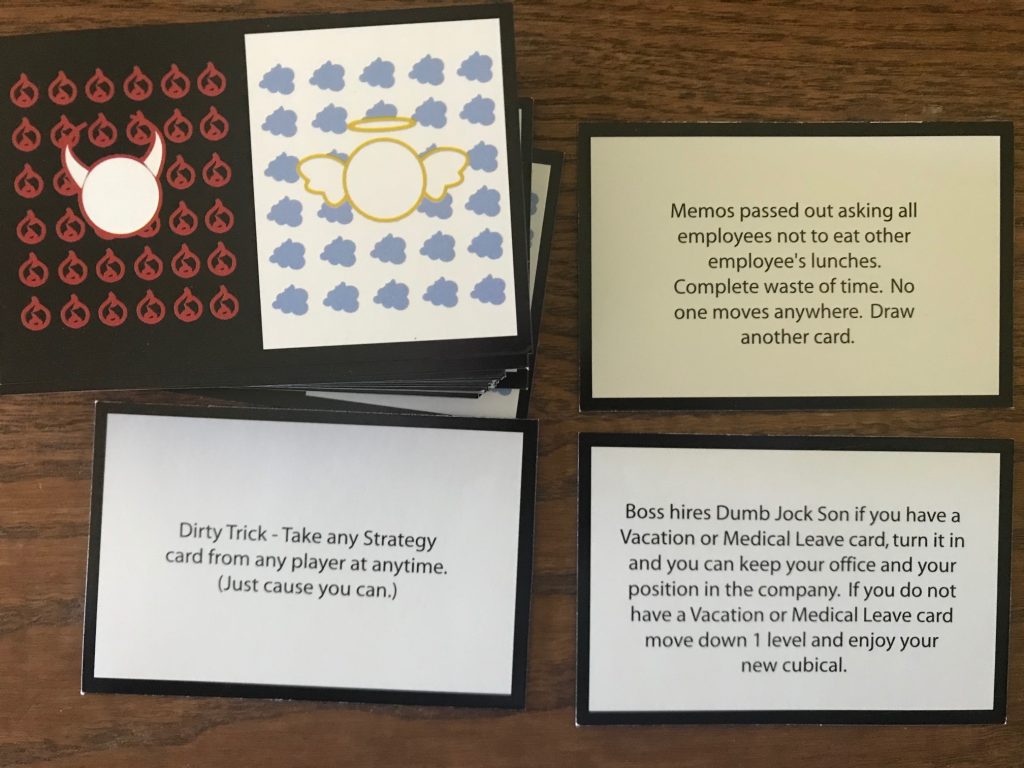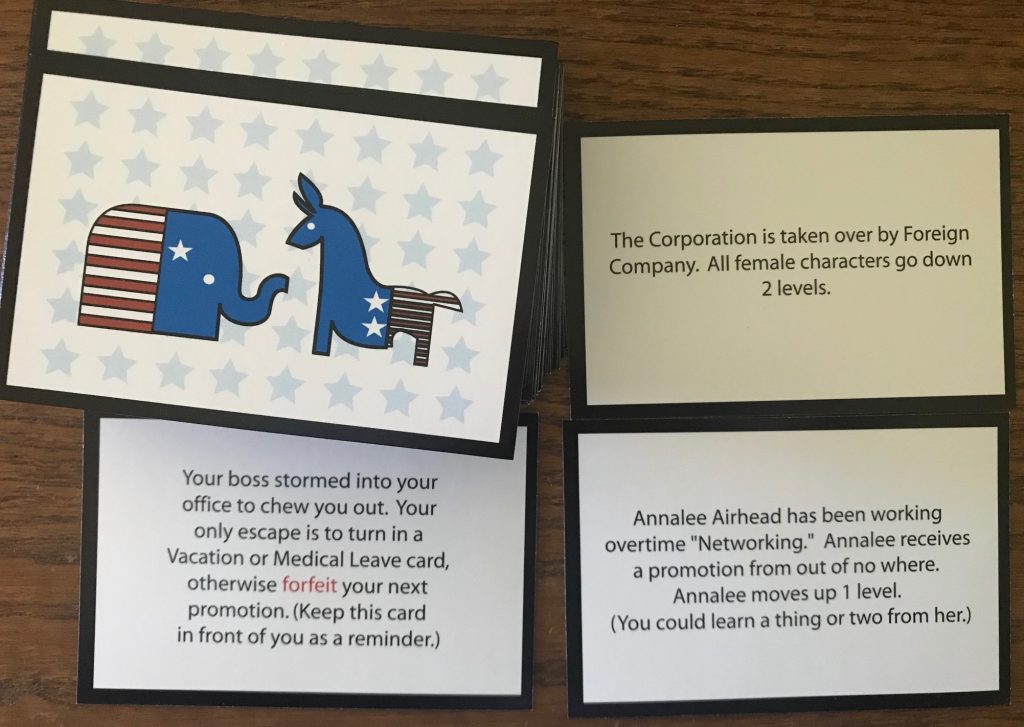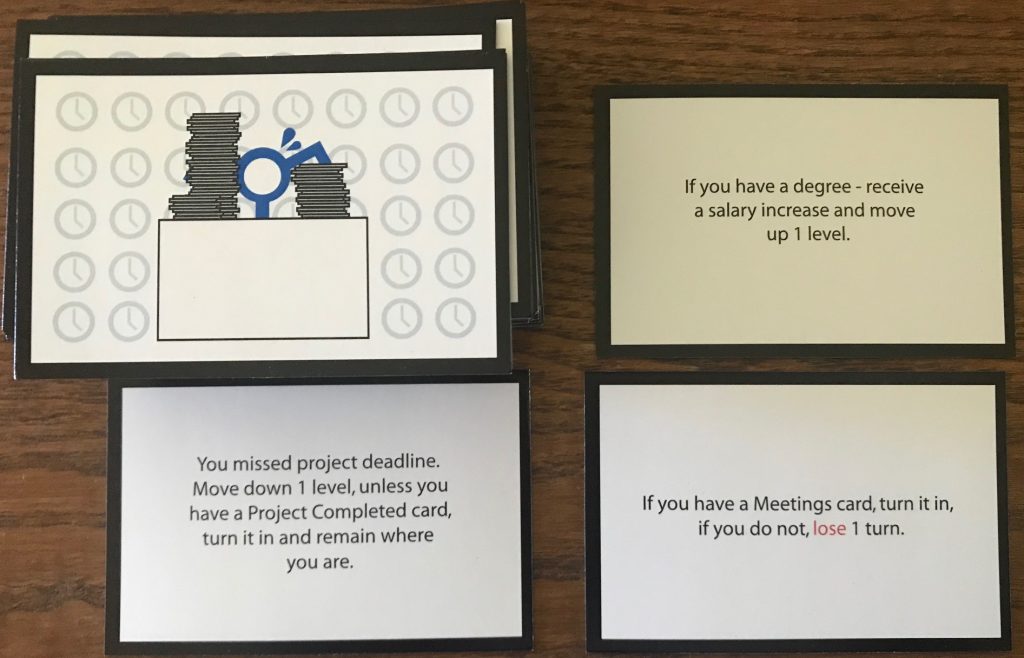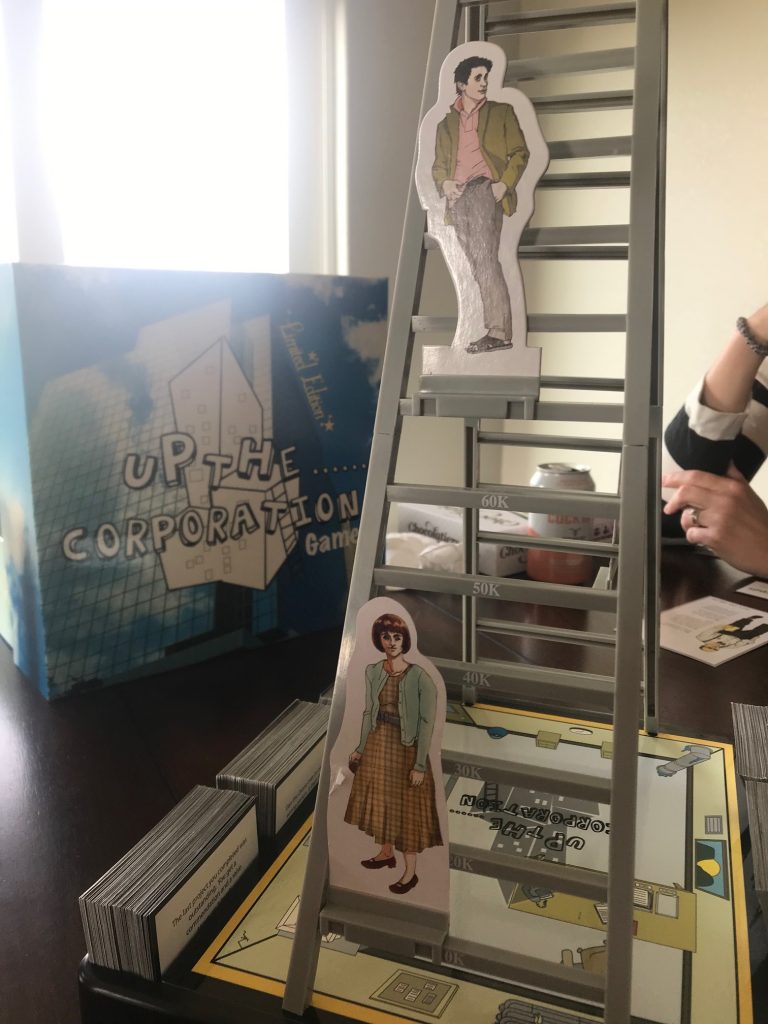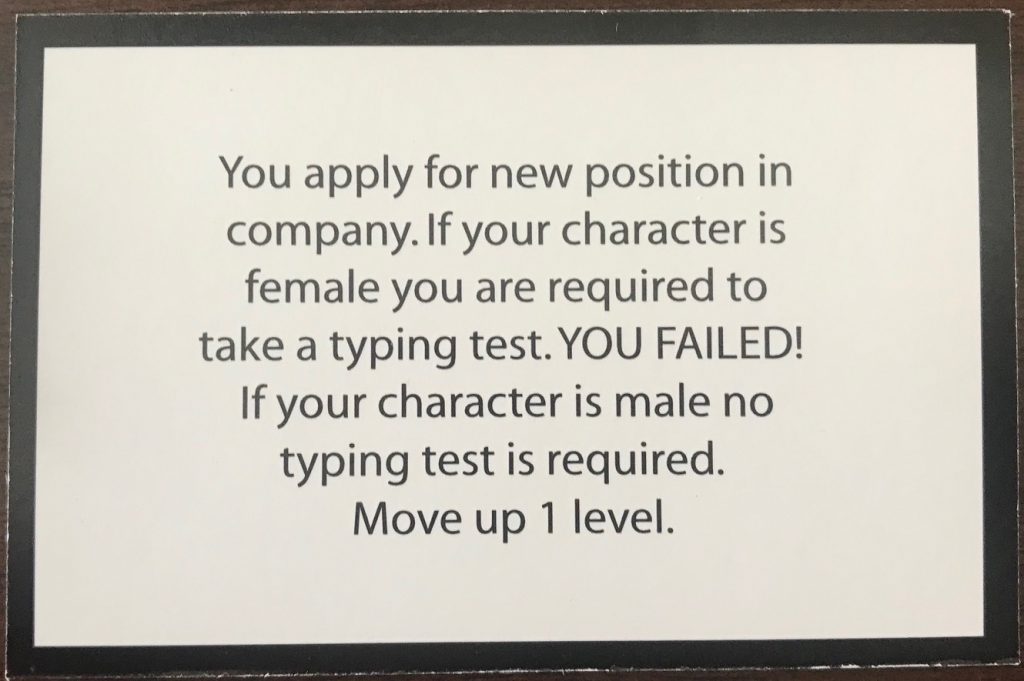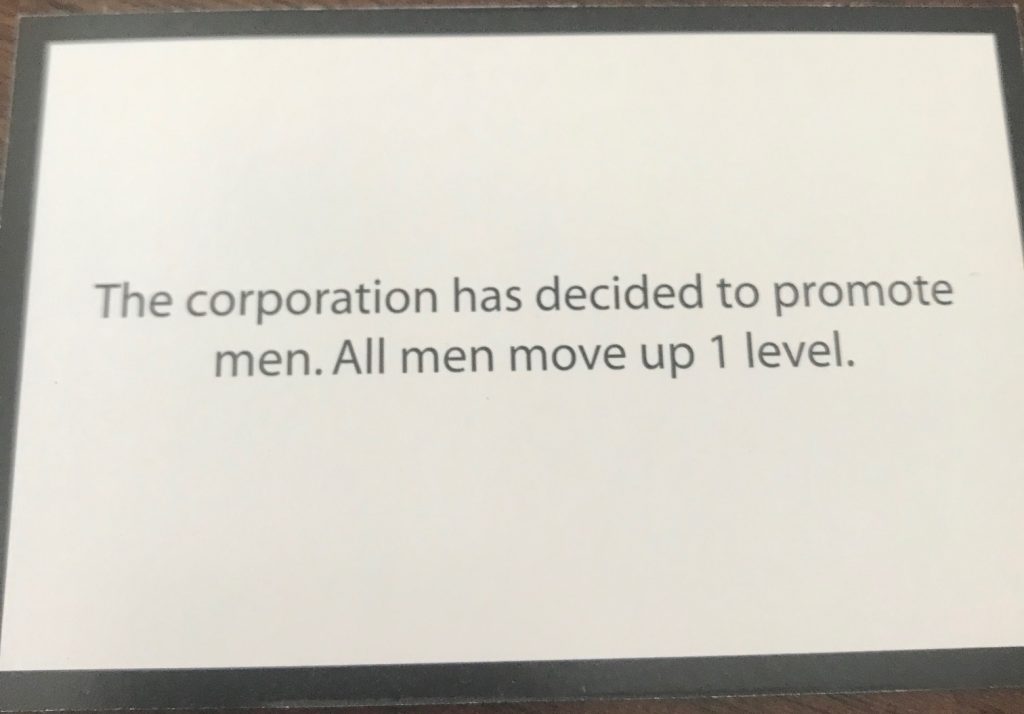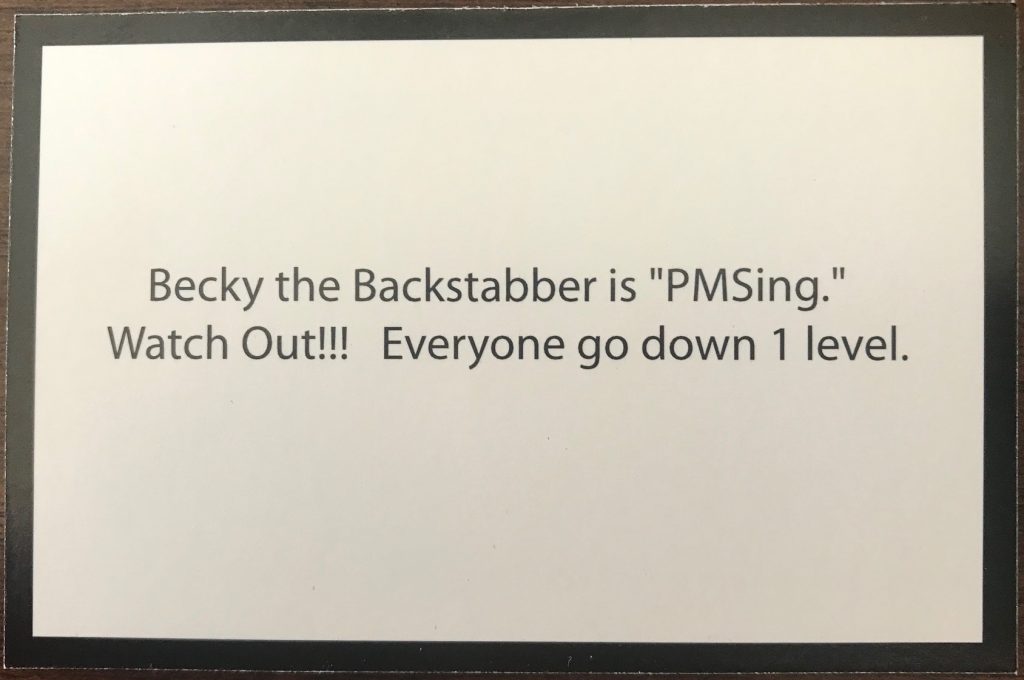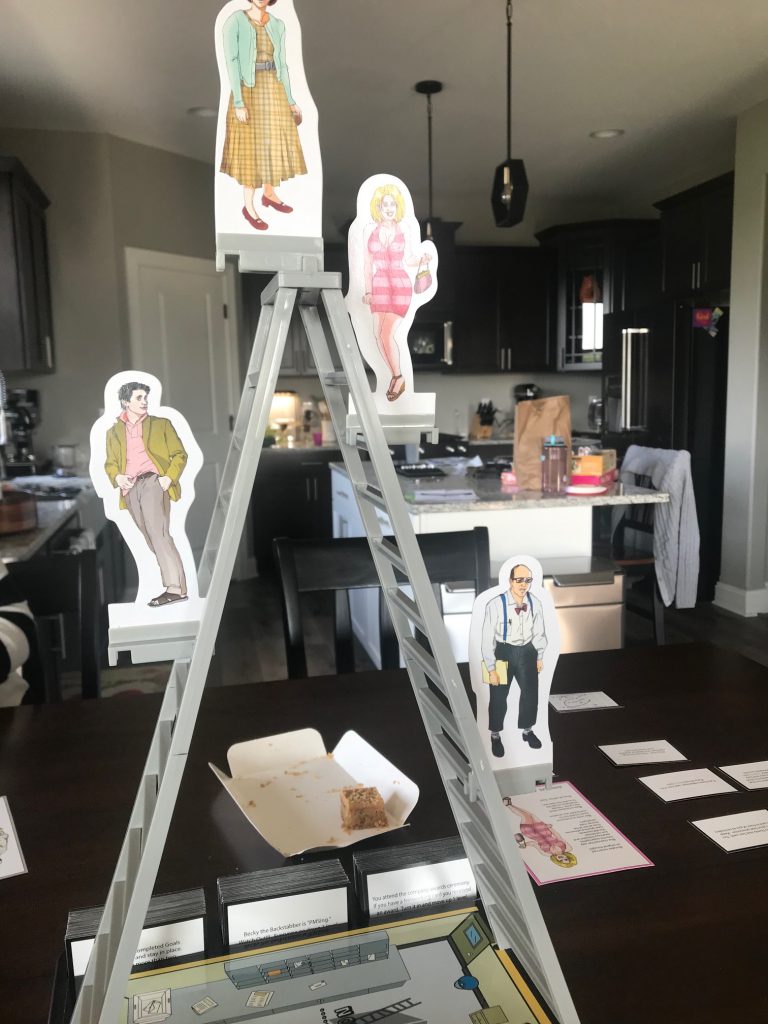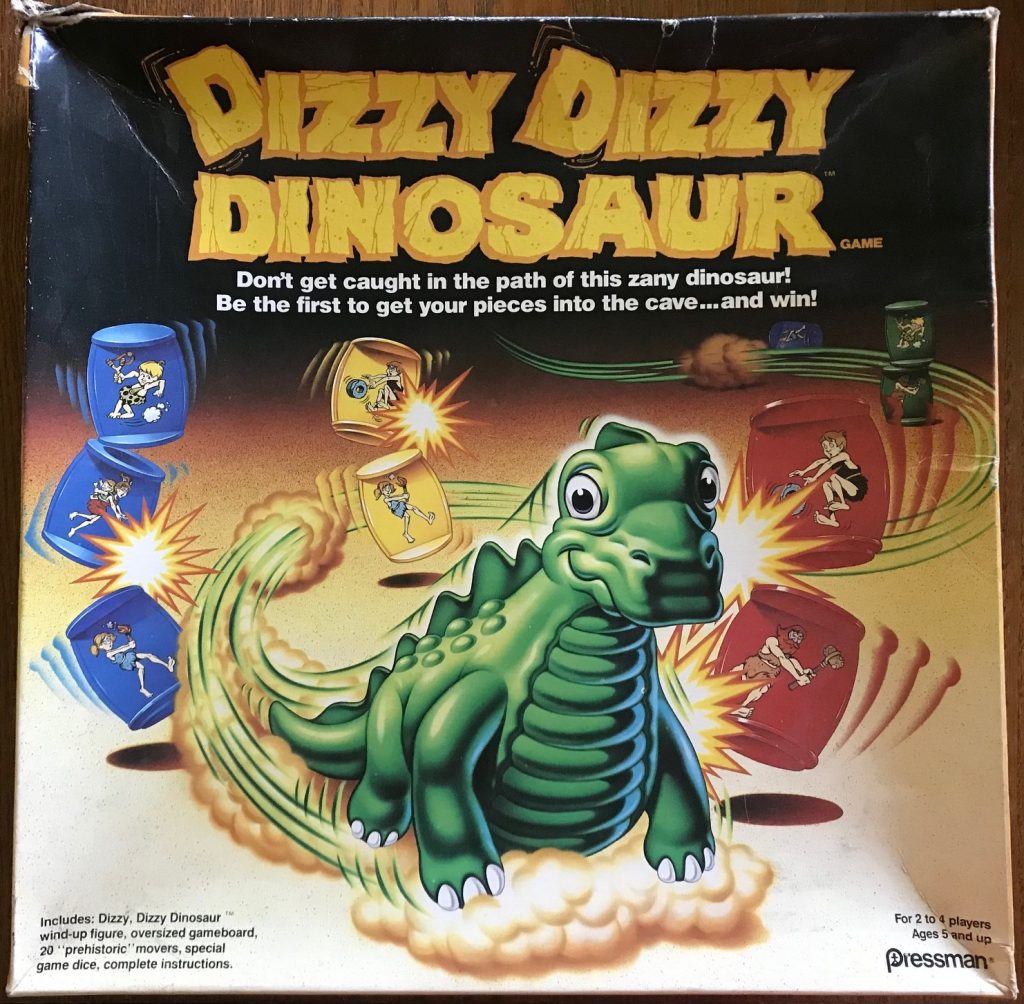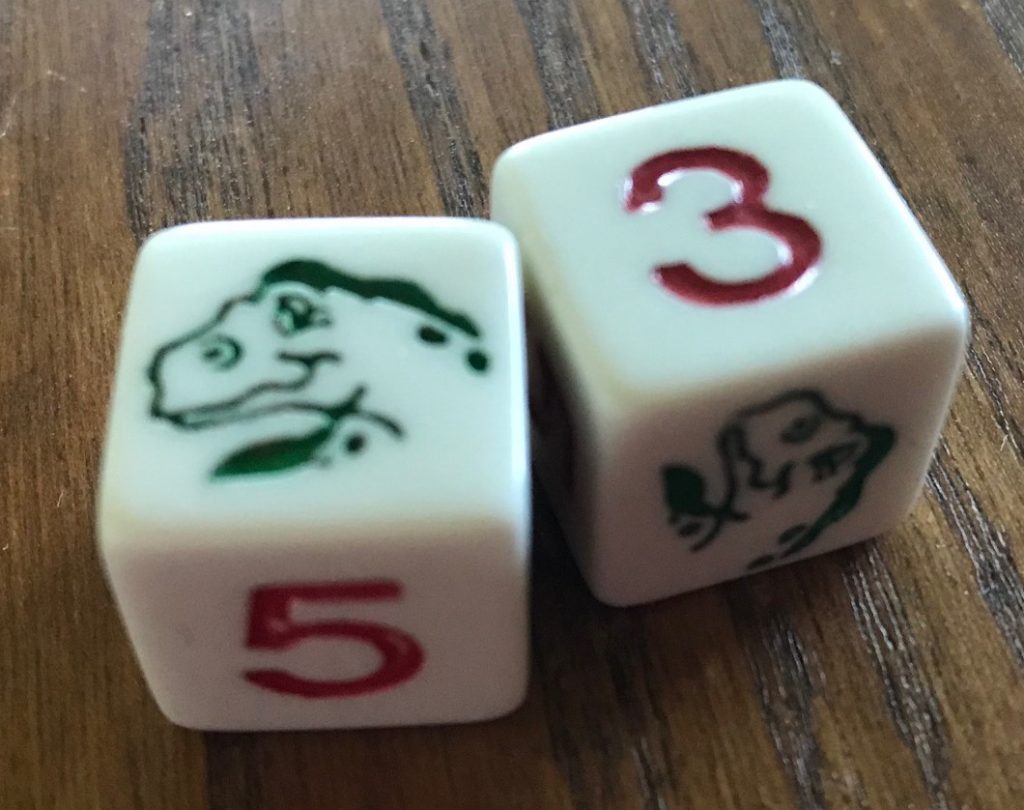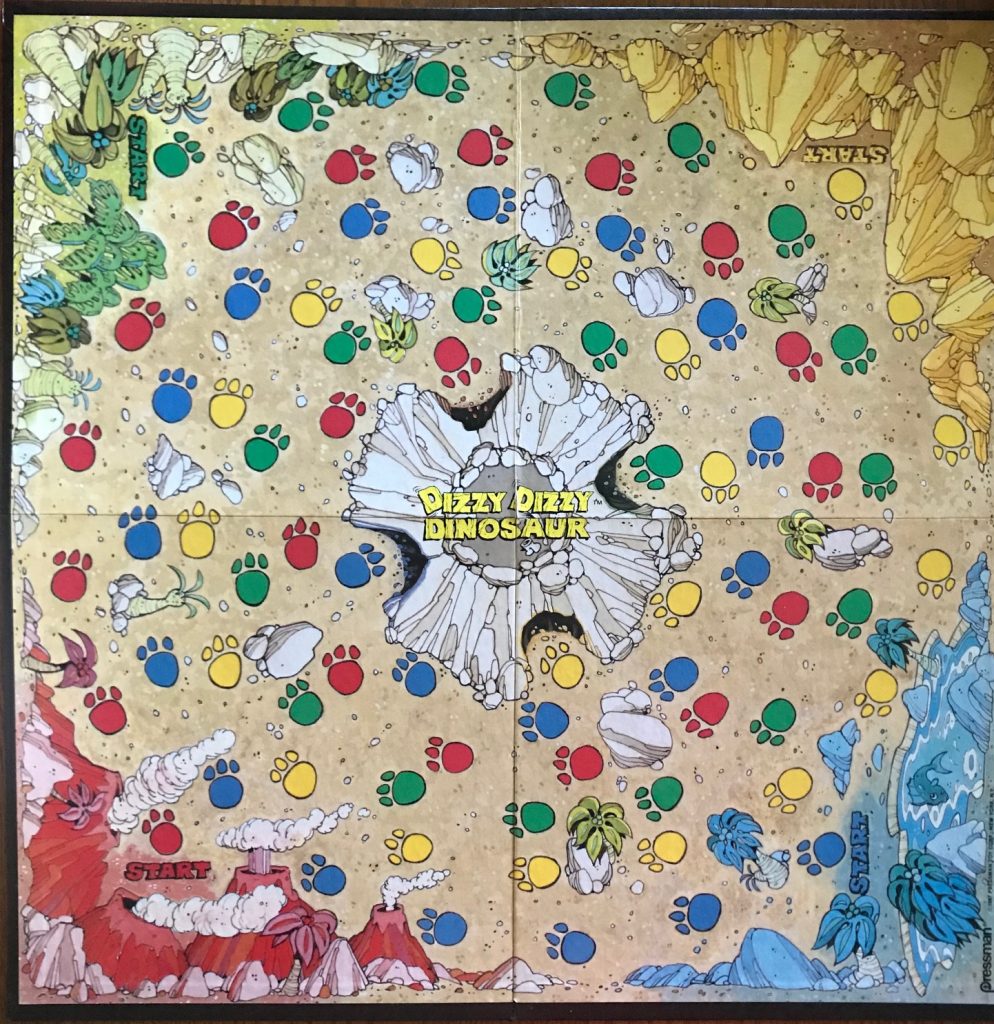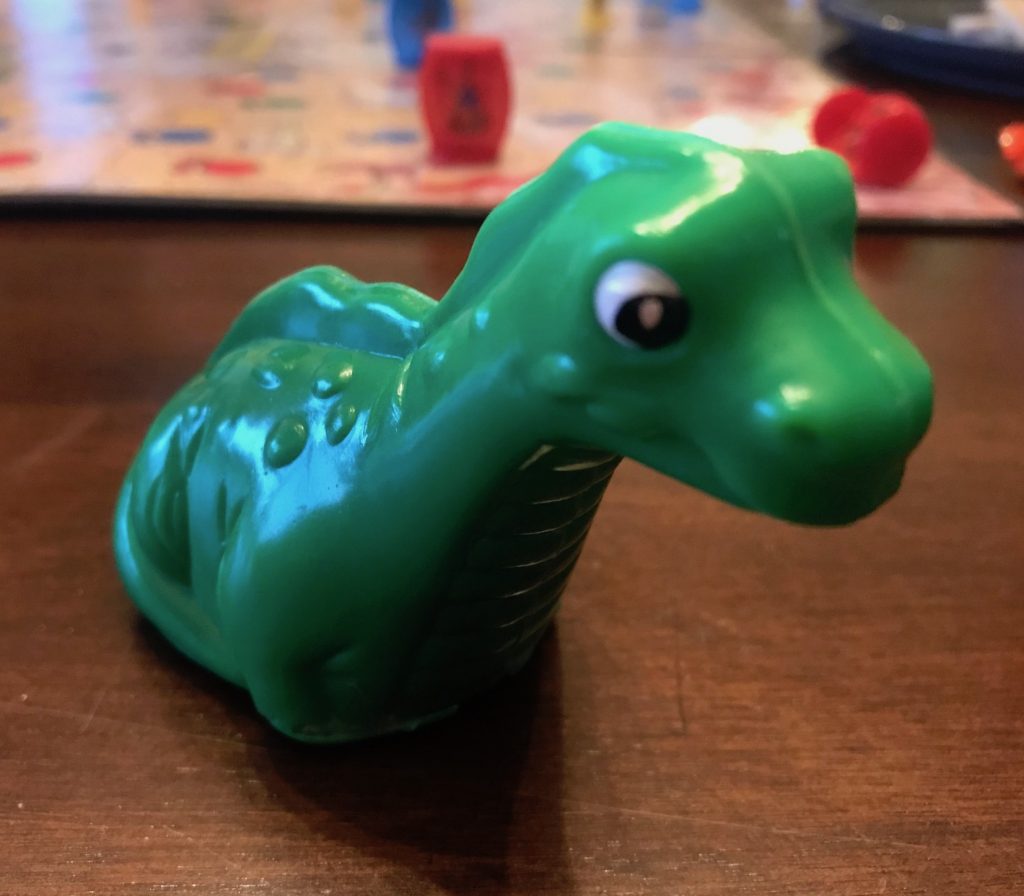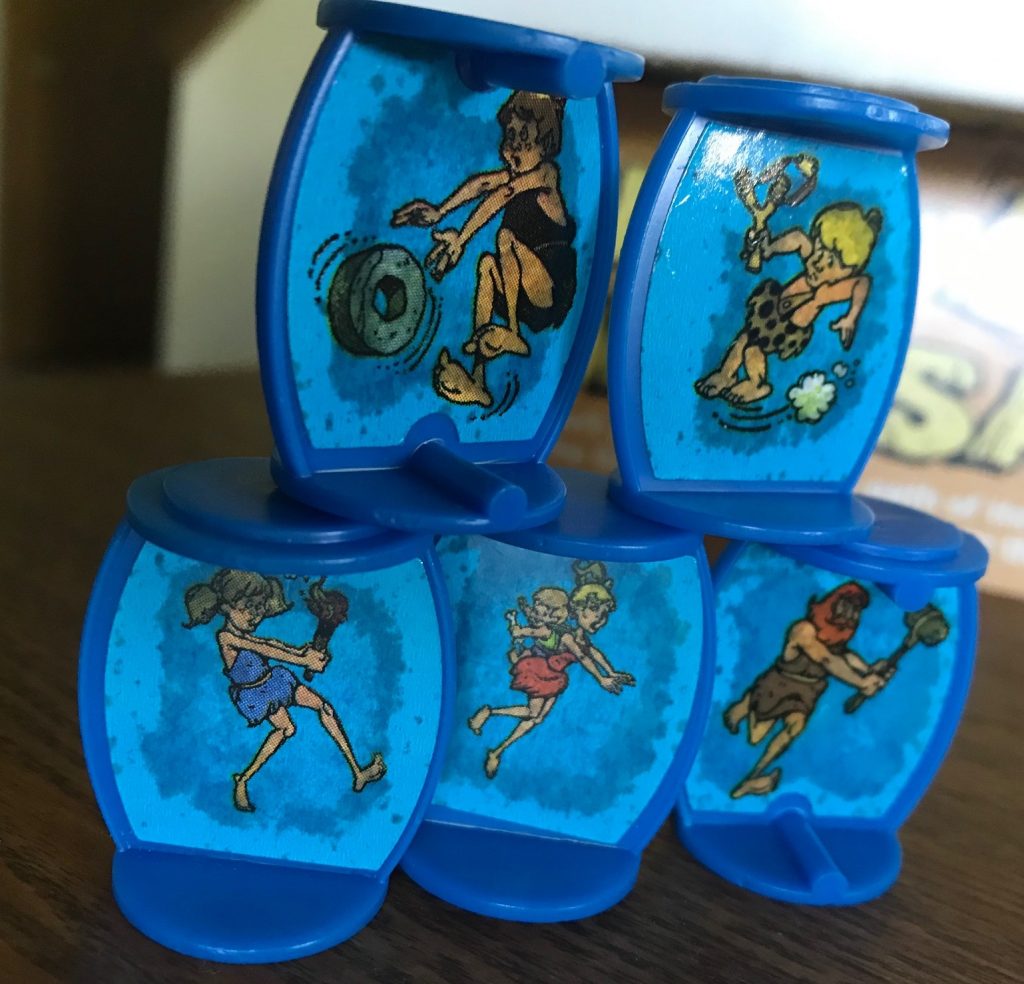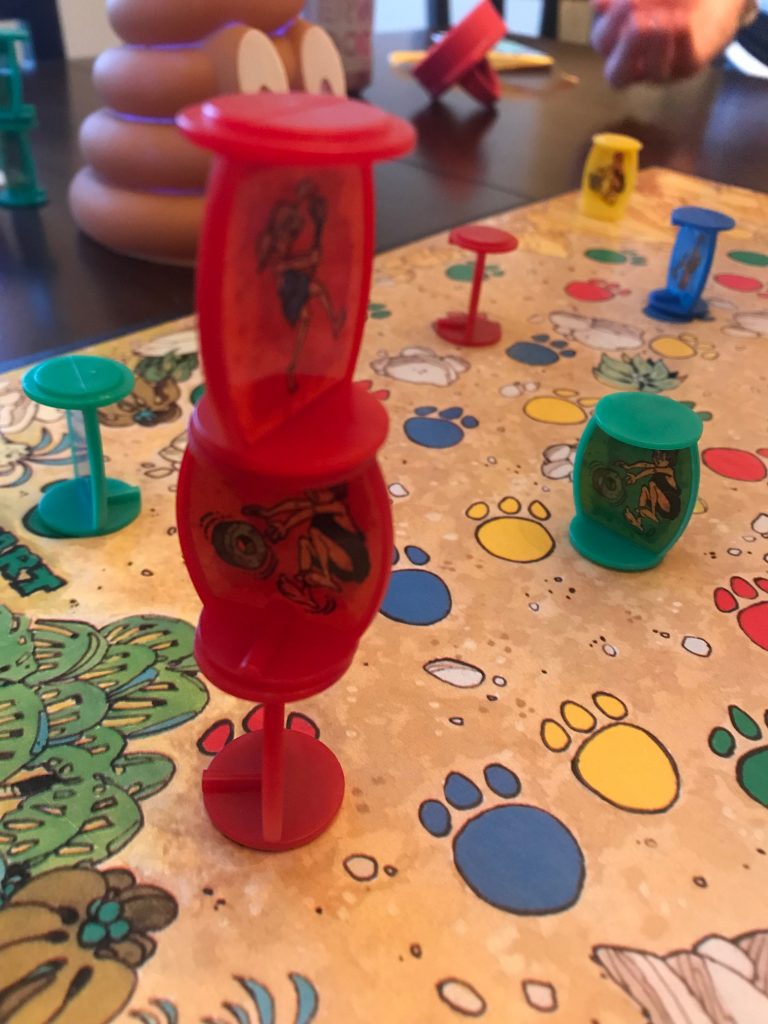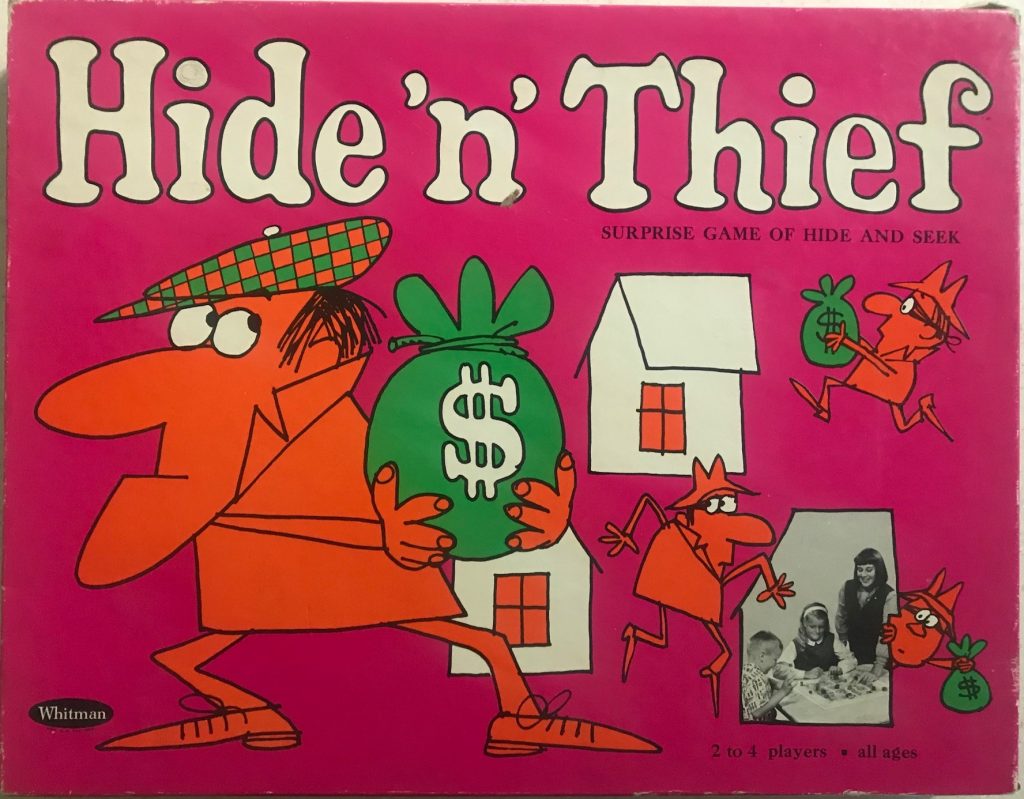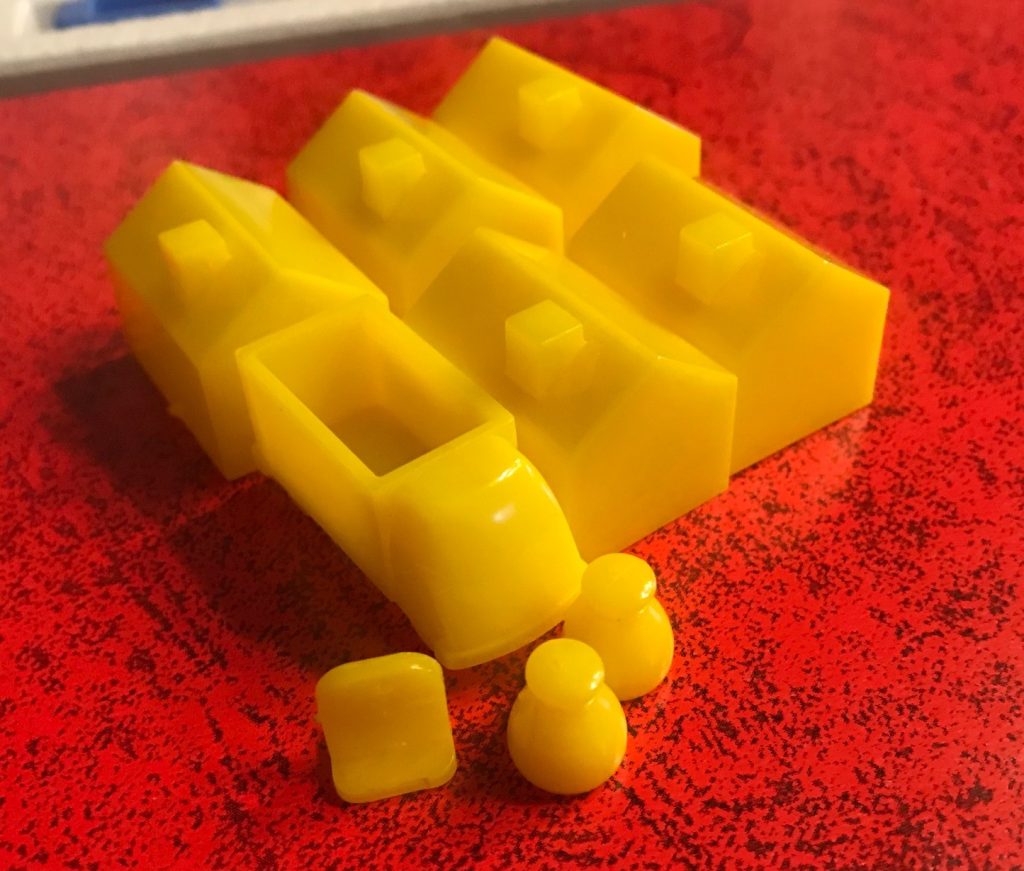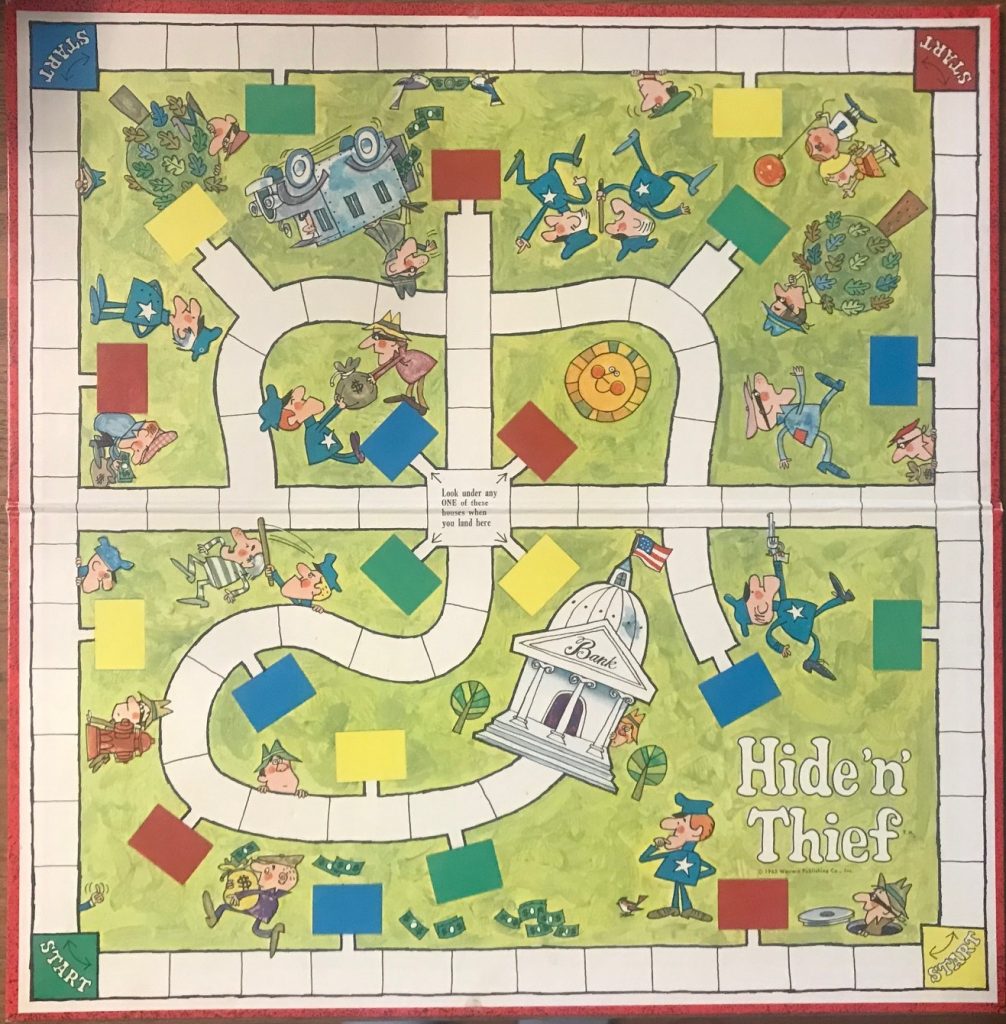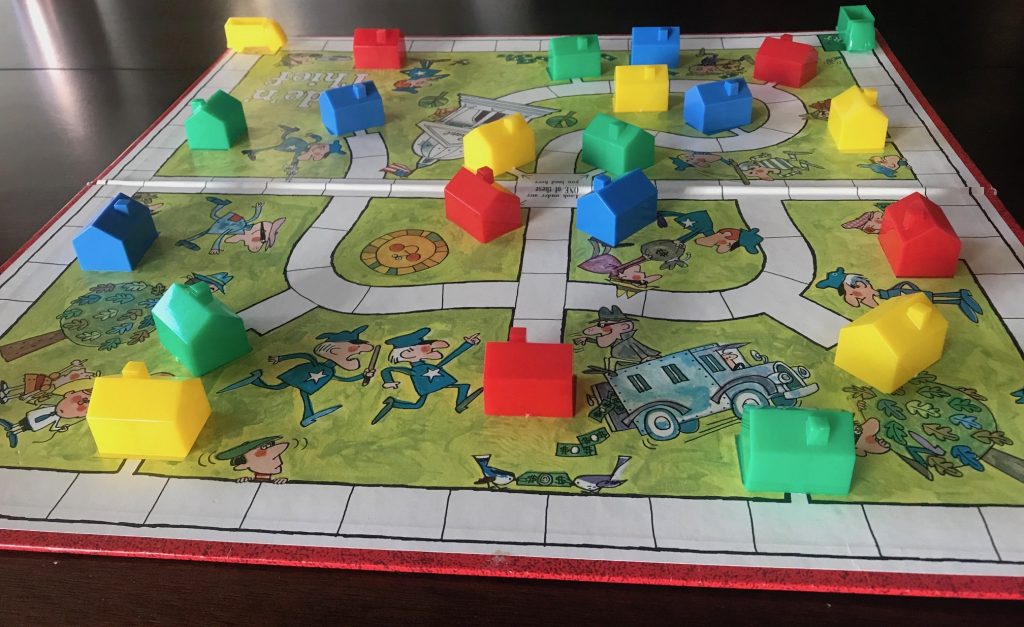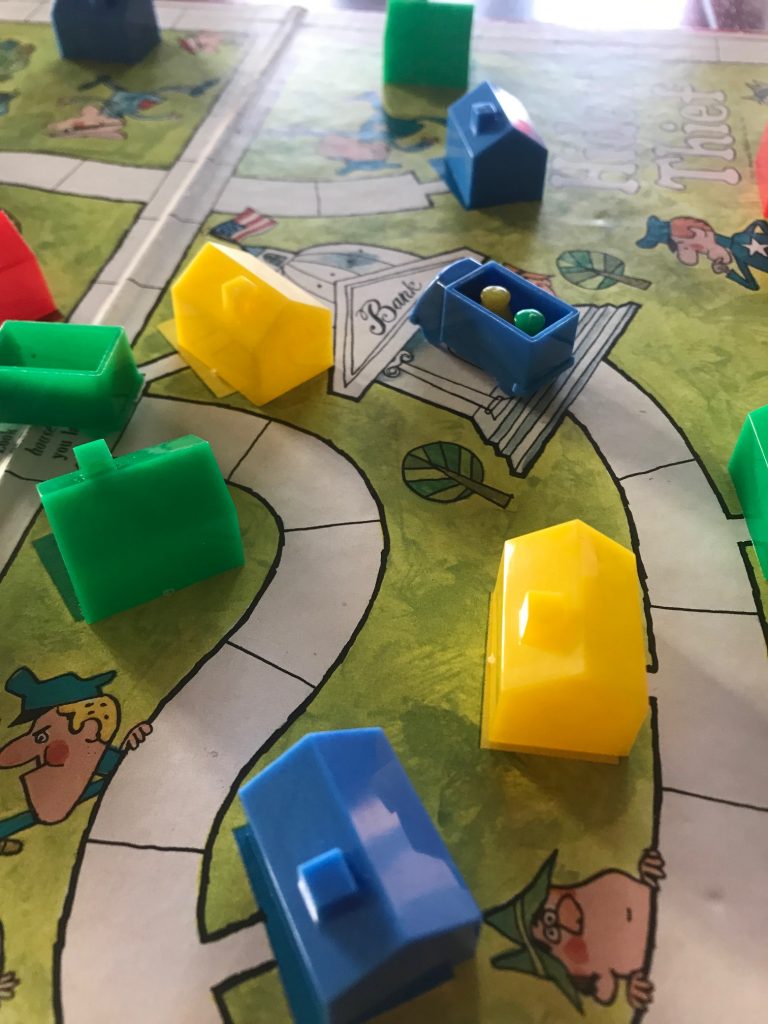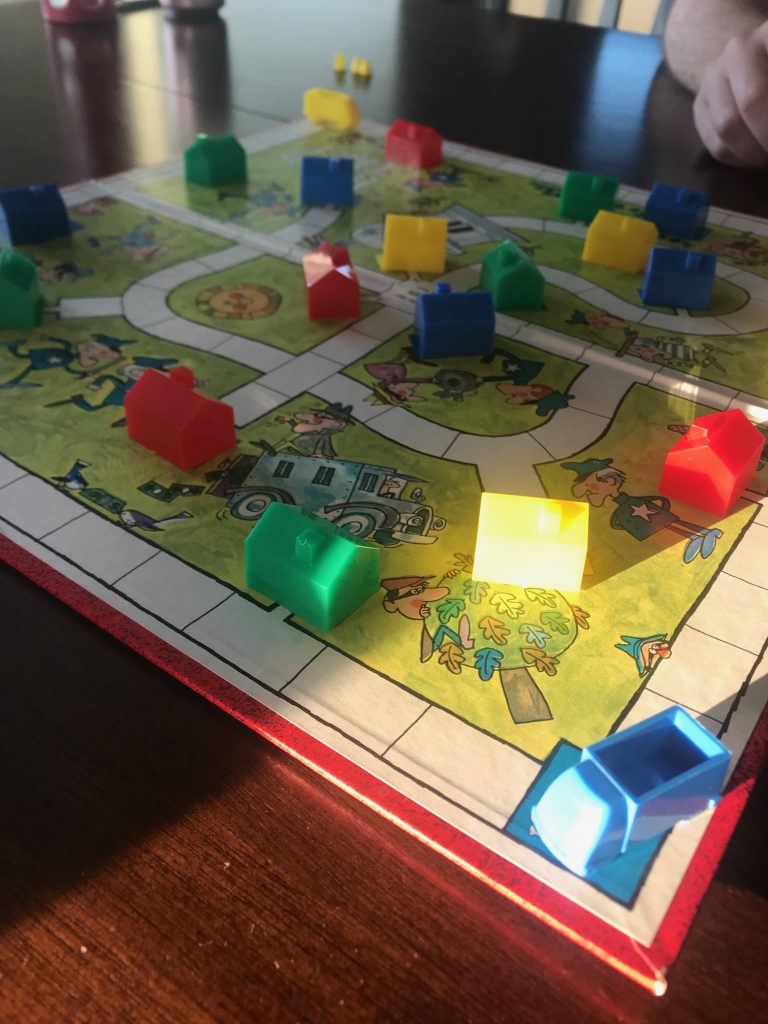Review: [Rodney Dangerfield’s Game] No Respect
Publisher: Milton Bradley
Year: 1985
Tagline: A NERVE-RACKING, NUMBER-STACKING GAME OF SUDDEN DEATH
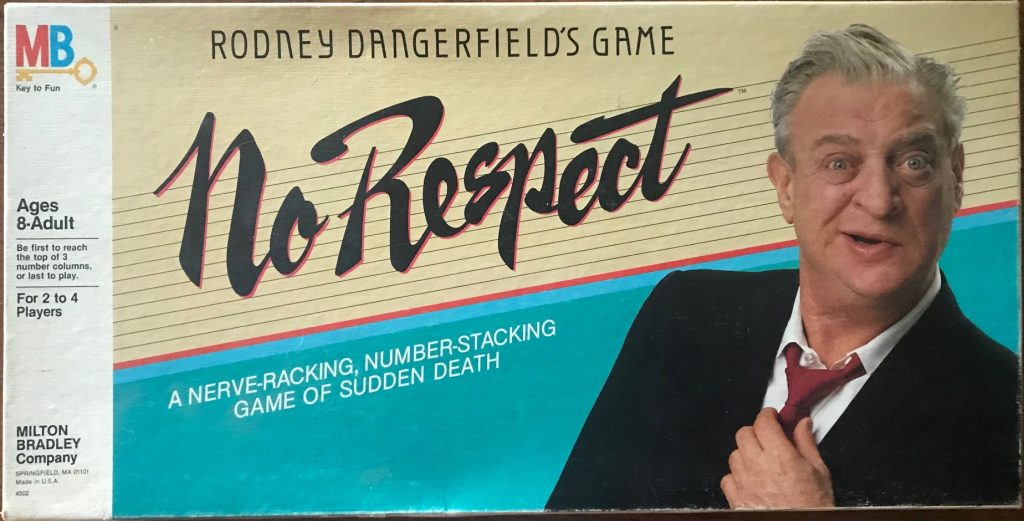
how we met
I have seen No Respect on forgotten game lists and vintage game lists and all kinds of lists for a long time. I just assumed that I would find it someday. It’s not all that uncommon to find, the trick is that most of the time you find it the seller is pricing something they assume is very valuable, like when you see an Elvis record at a flea market and it’s priced like it’s made out of gold. So I was happy when Bill found it recently at thrift, because I figured we would play once and resell it.
how it plays
The first thing you need to understand about how to play this game is that it has nothing, but nothing, to do with Rodney Dangerfield. The game is simple, but takes a bit of explanation.
No Respect comes with 80 little plastic number tiles, made up of 10 sets each that go from 1 to 8 (NOTE: this means that anything that looks like a 6 is a 6 and not a 9). All of those numbers need to get mixed up and go upside down in the middle of the game board.
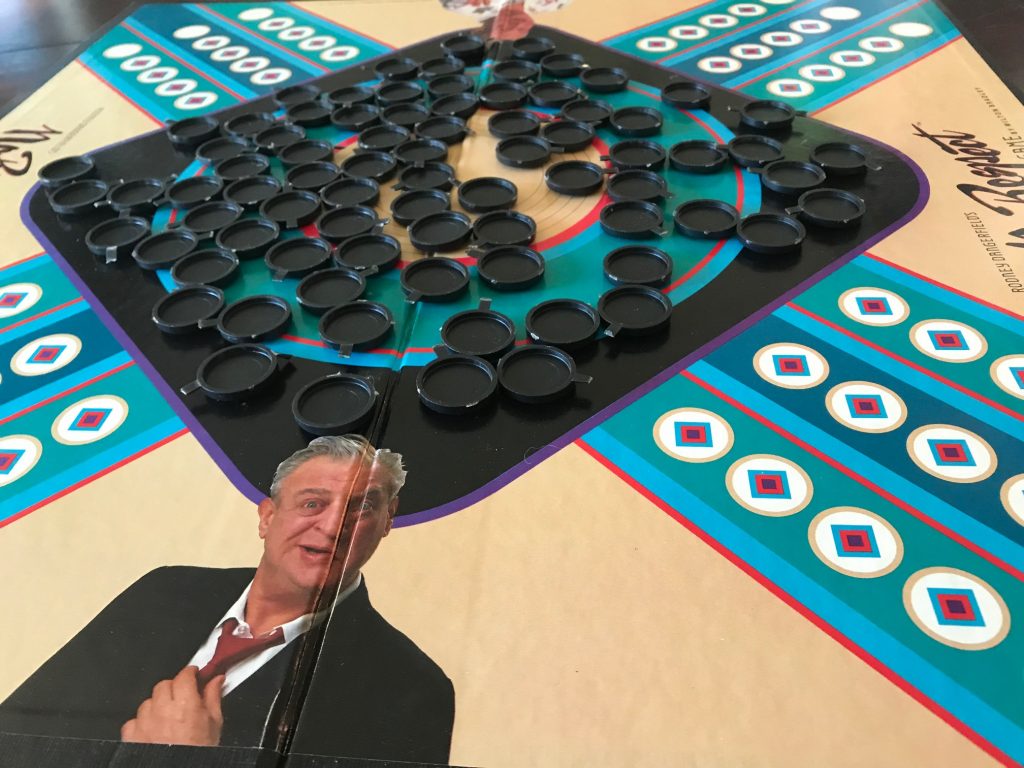
The goal of each player is to win in one of two ways: you can either complete all 3 of your columns, which the rules rightly point out is unlikely, or you can be the last player able to play at all.
Each player has three columns consisting of four circles with designs on them, and one bottom circle that is blank. The blank circles are your DISCARD area, and the design circles are where the magic happens.
On their turn, a player turns up one of the plastic pieces in the middle and will get a number from 1 to 8. Each column is independent, and any numbers you play on your design circles need to start at the bottom of a given column and the numbers must get smaller as you work toward the center of the board.
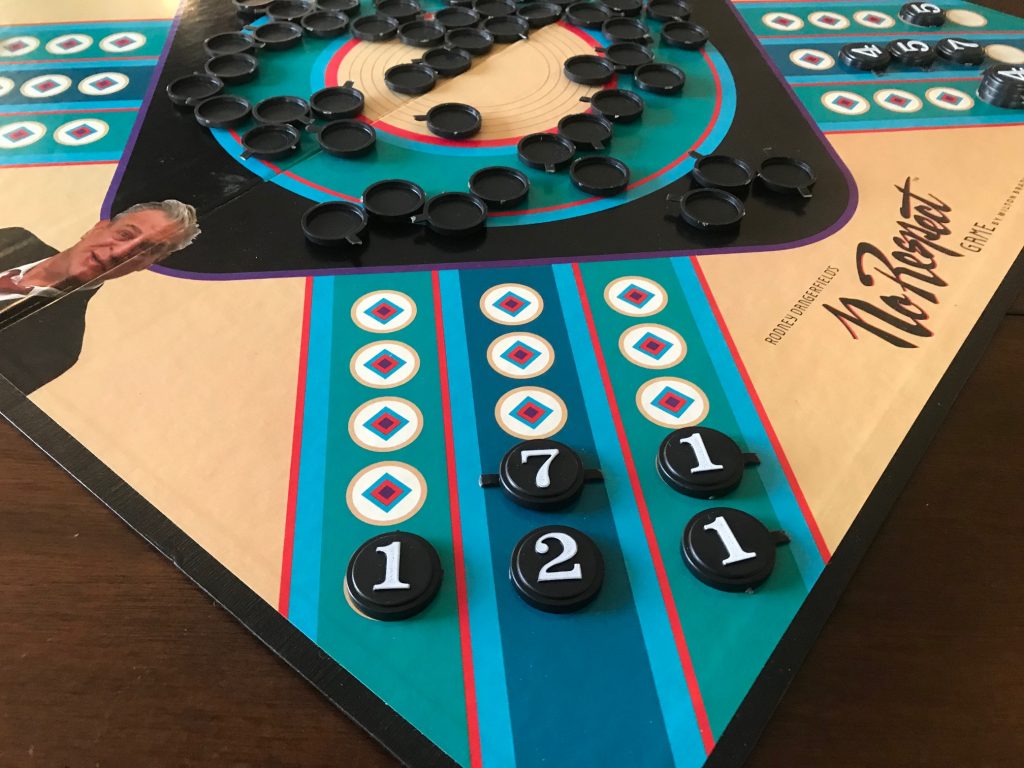
You can also place a number in one of your precious DISCARD areas, or you can STACK it on another matching number in play. You can’t stack on the DISCARD areas, yours or opponents. But if you or an opponent has a number showing that matched the one you drew, you can STACK it on top of that number as long as it is the topmost tile in that column. A STACK is only two tiles high and the tiles must be the same number.
The goal of a STACK is to ultimately CAP a player’s column. If any of the topmost tiles an opponent is showing are STACKED and you draw a matching number, you can play it on that STACK to CAP the tiles and that column is dead. Nothing else can be played on it. A CAP is only 3 tiles high.
So if you draw a 4 on your first turn that kind of sucks because you either have to use up one of your lovely DISCARD circles or must place a 4 as your starting number in one of your tiles. This would mean that only 3 then 2 then 1 can close that column for you. If an opponent happened to have a 4 played that early, you best STACK it on theirs.
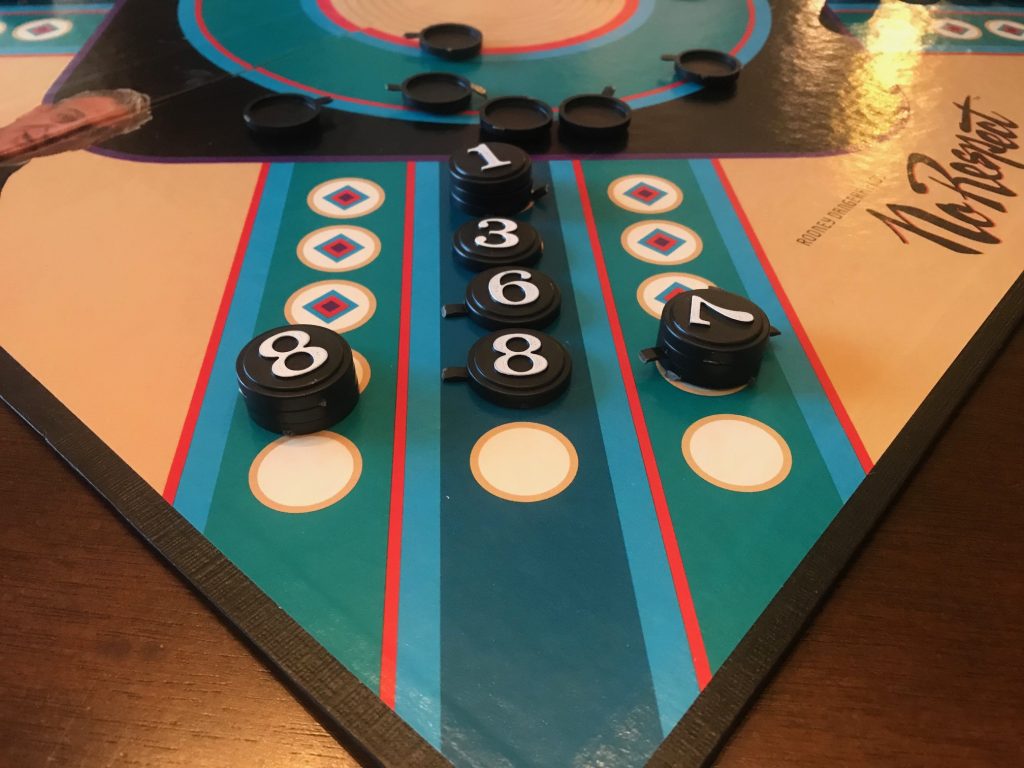
As mentioned above, the first player to successfully complete all three columns OR the last player to be able to play wins No Respect!
how it went
No Respect brings me a tad bit of shame because I have read around 5,000 vintage board game lists and I was very aware of this game. I have seen it for sale several times, especially at toy shows, but they always want way too much money. It’s never been in my wishlist. I never even bothered to look up how it plays.
So imagine my surprise when we open it up and find 80 little number tiles. The only jokes are on the box! And the insert!
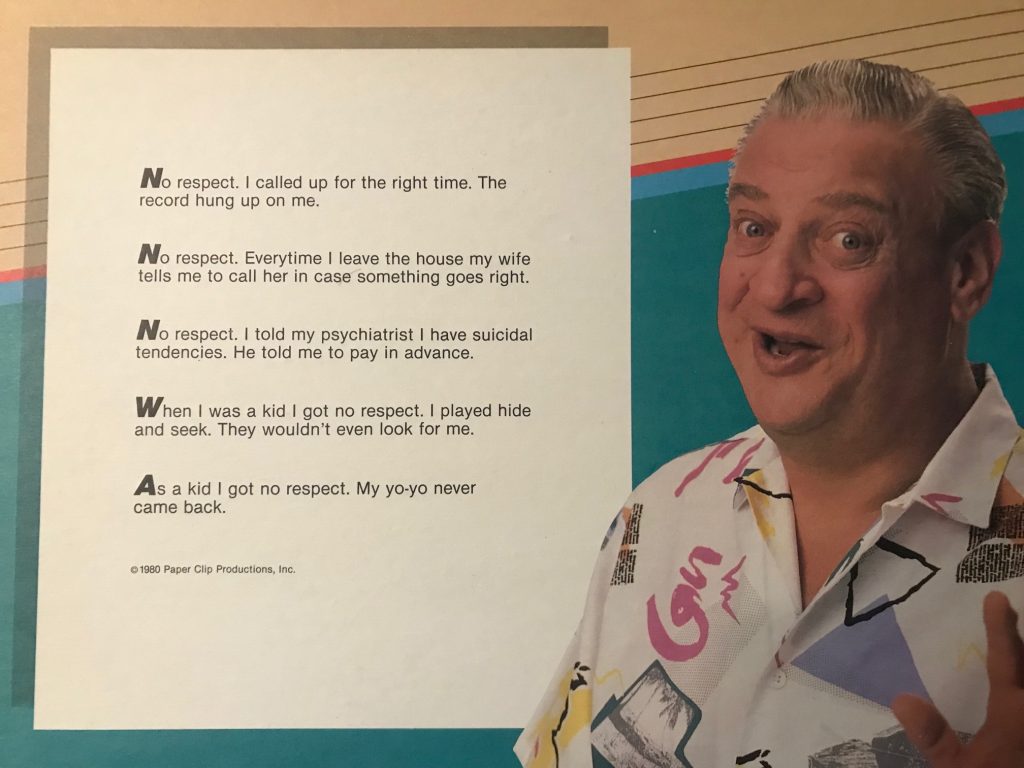
We enjoyed No Respect so much that we played a couple of games back to back. This is one of the cases, too, where I think playing more than once actually taught us something (not always the case).
The rules point out that it will be rare for a player to close all three of their columns. In our second play, when we knew that our goal was to try and avoid playing on our own space unless it made a lot of sense, the game was a tad more cut-throat.
No Respect still has luck involved. I mean you are picking a number from a bunch of face-down numbers. But there’s strategy too. In order to be the last man standing, you need a lot of options. Ultimately, whenever you put a number down on your space you have a target. The more columns you play, the more targets you have. Any target you have with a STACK is no good. Your DISCARD space is precious, but it needs to be used when it makes sense. And it’s important to follow any “take that” instincts that you have.
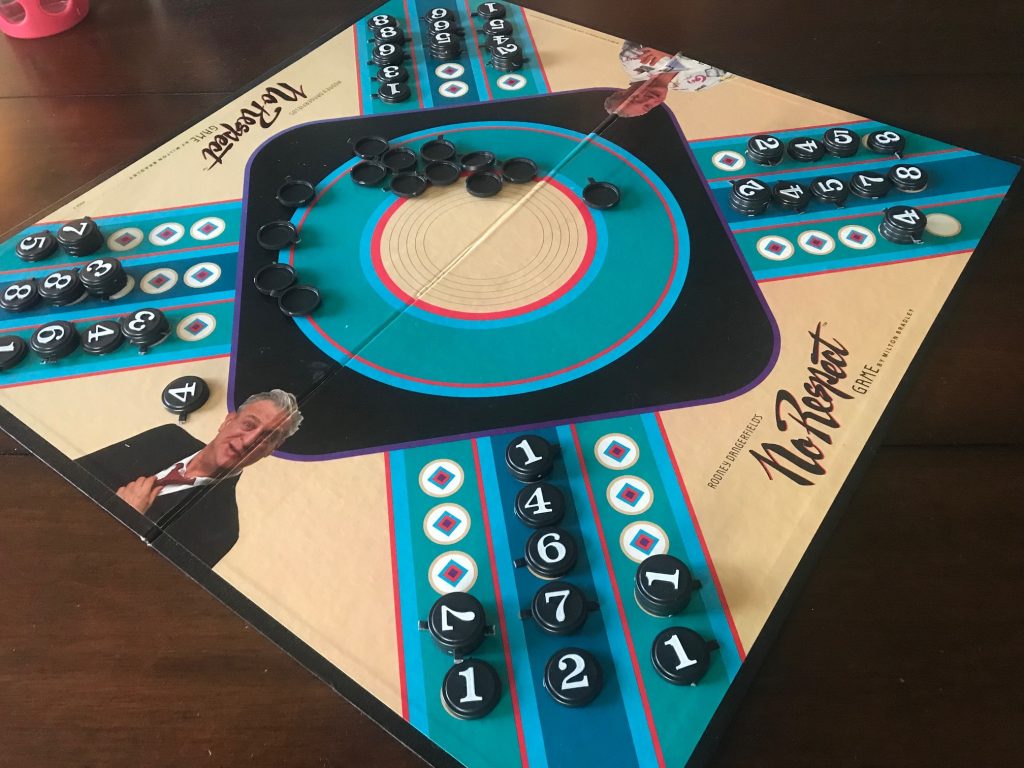
In our first game, John had to run an errand so we continued to play on his behalf, balancing his decisions between the three of us. And John ultimately won our first game in his absence! We played one more time that night and Bill got that win!
play or pass
Play. No Respect is a game I would probably play on my iPad if it existed in that format. Luck is a big factor, but you will be happy or sorry with the strategic decisions you make along the way. I am keeping this game in my collection, and I did not see that coming.
